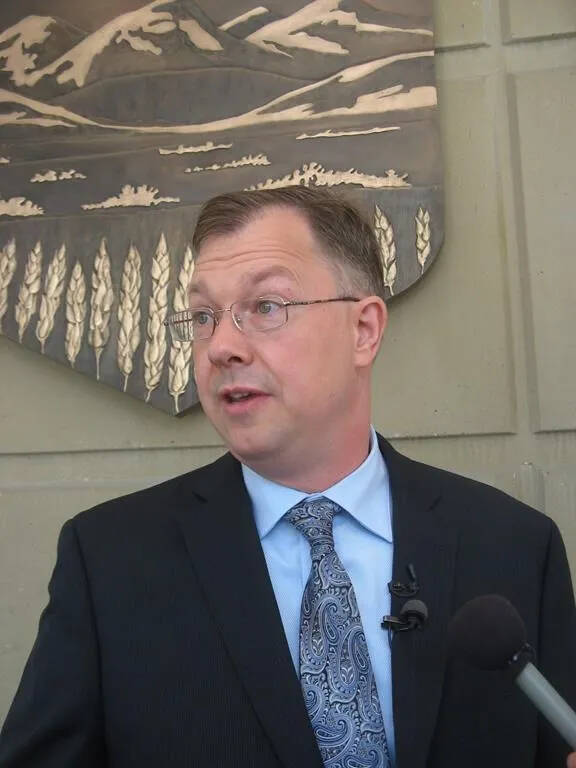Lawyers must uphold the law
Advertisement
Read this article for free:
or
Already have an account? Log in here »
To continue reading, please subscribe:
Monthly Digital Subscription
$0 for the first 4 weeks*
- Enjoy unlimited reading on winnipegfreepress.com
- Read the E-Edition, our digital replica newspaper
- Access News Break, our award-winning app
- Play interactive puzzles
*No charge for 4 weeks then price increases to the regular rate of $19.00 plus GST every four weeks. Offer available to new and qualified returning subscribers only. Cancel any time.
Monthly Digital Subscription
$4.75/week*
- Enjoy unlimited reading on winnipegfreepress.com
- Read the E-Edition, our digital replica newspaper
- Access News Break, our award-winning app
- Play interactive puzzles
*Billed as $19 plus GST every four weeks. Cancel any time.
To continue reading, please subscribe:
Add Free Press access to your Brandon Sun subscription for only an additional
$1 for the first 4 weeks*
*Your next subscription payment will increase by $1.00 and you will be charged $16.99 plus GST for four weeks. After four weeks, your payment will increase to $23.99 plus GST every four weeks.
Read unlimited articles for free today:
or
Already have an account? Log in here »
Hey there, time traveller!
This article was published 01/11/2023 (738 days ago), so information in it may no longer be current.
It is difficult to imagine what Calgary lawyers John Carpay and Randal Jay Cameron were thinking when they hired a private investigator to spy on King’s Bench Chief Justice Glenn Joyal in the summer of 2021.
The pair, who have been banned from practising law in Manitoba for life, claim they did not intend to break the law when they hired Chase Investigations to conduct “passive surveillance” of the chief justice. However, after both were charged criminally with intimidation of a justice system participant and attempting to obstruct justice, they agreed their conduct could have had the effect of both.
The impact of their actions, in fact, extended beyond that. As King’s Bench Associate Chief Justice Shane Perlmutter said in last week’s case, it was an “affront to the administration of justice.” They not only acted unprofessionally and unethically, Carpay and Cameron attempted to undermine the integrity of the court. For that, they are not only barred from ever practising law in Manitoba, they face a three-year ban to work as lawyers anywhere in Canada.

Bill Graveland/The Canadian Press
John Carpay is one of two lawyers banned from practicing law in Canada for three years after they hired a private investigator to surveil a judge.
The latter was the outcome of a plea bargain unveiled last week between the pair’s lawyers and Manitoba Crown prosecutor Chris Vanderhooft.
In Canada, lawyers are officers of the court. They have a duty not only to their clients but to uphold the sanctity of the justice system. They must act professionally and legally and show deference and respect to members of the bench. It is critical in maintaining public confidence in the judicial process. Consequently, those who work within it, including lawyers, judges, magistrates and other officers of the court, must act honourably and ethically.
Hiring a private investigator to spy on a judge, in this case to see whether he was complying with public health orders during the COVID-19 pandemic (the chief justice was presiding over a case in which Carpay and Cameron were representing local churches challenging the constitutionality of public health measures), violates that code of conduct. It was an attempt to besmirch the reputation of a member of the judiciary.
Carpay’s and Cameron’s lifelong ban on practising law in Manitoba was handed down by the Law Society of Manitoba following a hearing in August. Carpay pleaded guilty to breach of integrity and Cameron to professional misconduct. Both were also fined $5,000. It was an appropriate sanction.
In the criminal case, the Crown agreed to stay the charges against the pair in exchange for a three-year ban on practising law in Canada. Crown attorney Vanderhooft says that does not mean there was not a reasonable likelihood of conviction. However, there are always risks when a case goes to trial. The outcome is never guaranteed. The prosecution must weigh the potential benefits and risks when putting any case before a judge or jury. In this instance, proving intent was not without its challenges.
As Crown prosecutors sometimes do, Vanderhooft accepted a plea deal that secured an acknowledgment of wrongdoing and a corresponding penalty. The alternative of going to trial and possibly facing an acquittal would have been an undesirable outcome.
The plea bargain was a reasonable compromise that held Carpay and Cameron accountable for their actions while dispensing a meaningful and proportionate penalty. The loss of professional reputation caused by the pair’s actions may have an even greater impact on their careers as lawyers.
An integral and independent judiciary is a cornerstone of a healthy and well-functioning democracy. Carpay’s and Cameron’s actions were injurious to that institution. They paid an appropriate penalty for their wrongdoing.
History
Updated on Wednesday, November 1, 2023 7:06 AM CDT: Fixes byline







